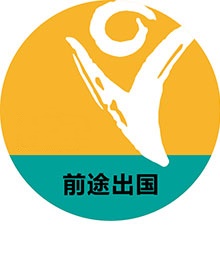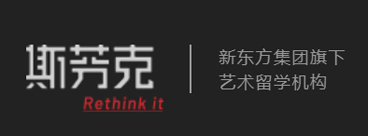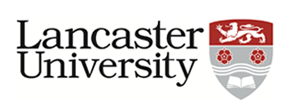【第六届辩手联盟】推荐文章:油价为何又在飙升?
今年辩手联盟的议题是:
俄乌事件后,欧盟对俄进行了能源制裁,全球经济局势将如何洗牌?不同国家应当如何应对?
2022年6月14日,美国经济学人杂志发表了一篇文章“油价为何又在飙升?”,推荐给各位已经报名或想要报名的学生阅读。
Why oil is spiking again?
油价为何又在飙升?
In the 1970s Arab states used the “oil weapon” of embargoes to punish Western governments for supporting Israel.
On May 30th the heads of the 27 EU member governments agreed to turn the weapon on themselves, as part of a fresh round of sanctions against Russia following its invasion of Ukraine.
As well as cutting off Sberbank, Russia’s largest bank, from the swift cross-border payment system, the package will also ban purchases of Russian crude oil and refined products, such as diesel, by the end of the year.
There would, the EU said, be a “temporary” exemption for oil delivered through pipelines.
The price of a barrel of Brent crude leapt above $120 on the news, its highest level since March.
In principle, the decision is highly significant.
As well as demonstrating unity, and the bloc’s willingness to bear economic pain to punish Russia, it cuts one of the few remaining trade ties with the Kremlin.
It also imperils one of Russia’s most lucrative sources of foreign-currency earnings.
The EU is Russia’s biggest market for crude, buying about half the country’s oil exports.
There are reasons, however, to be skeptical that the move will deprive the Kremlin of much foreign currency.
Fora start, the ban only applies to seaborne oil, transported via tankers.
That is the price of unity: excluding oil delivered by pipelines was necessary to find a compromise with Hungary, which is both more sympathetic to Russia than most EU countries and critically dependent on the Soviet-era Druzhba pipeline (a name meaning “friendship” in Russian).
Hungary imports about 65% of its crude from Russia.
Seaborne oil makes up a similar share of Europe’s imports from Russia.
But the ban is likely to have a limited impact on the oil market.
Many tankers are already subject to “self-sanctioning” in parts of the West.
Dockworkers have refused to unload ships carrying Russian cargoes and oil majors have been worried about the hit to their reputations from accepting shipments.
Western financiers are stepping back from writing insurance contracts.
Insurers based in Russia’s allies could partly replace them, but have shallower pockets.
A big question is whether Russian seaborne crude, once placed under sanctions, will go unsold. So far Russia’s oil exports have risen even as the country has come under sanctions.
According to analysts at JPMorgan Chase, a bank, much of the increase has gone to India, which has not issued sanctions of its own.
Another question is whether Europe does eventually ban piped Russian oil, which is harder to redirect to other countries.
Poland and Germany have said they will cease importing via the Druzhba pipeline.
Yet it is hard to imagine Hungary’s dropping its opposition to a wider ban.
Viktor Orban, the country’s populist prime minister, has demonstrated his willingness to block EU decisions before.
Thanks to a hefty discount on Russian crude--the Urals benchmark is trading significantly below Brent--mol, a Hungarian oil group, reports “skyrocketing” margins.
Partial though the embargo may be, such is the tightness of the oil market that prices still surged.
Demand for fuel is strong as the pandemic subsides and consumers start driving and flying again, and as governments try to shield voters from the impact of higher energy costs.
China’s easing of coronavirus restrictions in recent days has also added to the thirst for oil.
The prices of industrial metals, including iron ore and copper, have rallied, too.
Meanwhile, the Organization of the Petroleum Exporting Countries (opec) and its allies, which include Russia, have shown little sign of increasing production just yet.
The group was due to meet on June 2nd, as we went to press, and was not expected to depart from its plan to gradually increase supply to levels seen before the pandemic (although prices dipped on reports that it was mulling a plan to exclude Russia from its production targets, allowing Saudi Arabia and others to pump more to make up for any lost output).
Tight supply and robust demand together translate into higher prices for consumers at the pump.
To make matters worse, a shortage of refinery capacity in America has raised prices for petrol and diesel even further than the cost of crude.
The surging dollar adds to costs for Europe and emerging markets, notes Francisco Blanch of Bank of America.
None of this is welcome news in an already inflationary environment.
According to figures published on May 31st inflation in the euro area rose to 8.1% in the year to May, higher than economists had expected.
The Arab embargoes of the 1970s caused short-term pain for the West, but also spurred a drive for fuel efficiency that ultimately reduced its reliance on oil.
European governments today may find themselves hoping that the short-term pain for consumers similarly gives way to the long-term gain of energy security.
文章重点单词
partial ['pɑ:ʃəl]
adj. 部分的,偏袒的,偏爱的
联想记忆 part部分,只喜欢一部分人-偏袒的
redirect [.ri:di'rekt]
adj. 再直接的 v. 重新传入,重新寄送
联想记忆 re重新,direct(v 指引;导演)
pipeline ['paip.lain]
n. 管道,管线
联想记忆 pipe管,line线-管道
security [si'kju:riti]
n. 安全,防护措施,保证,抵押,债券,证券
联想记忆:se 表示分开(来自separate分离)cur=care→ 远离关心,就是不需要关心的东西,引申为安全
ore [ɔ:]
n. 矿,矿石
语境联想记忆:iron ore 铁矿
emerging [i'mə:dʒ]
vi. 浮现,(由某种状态)脱出,(事实)显现出来
联想记忆: mer=mar表示融合,沉浸, e出来→本来沉浸在里面,最后出来了→显现,浮现
dependent [di'pendənt]
adj. 依靠的,依赖的,从属的
联想记忆 de加强+pend=hang悬挂+ent→依赖的
inflation [in'fleiʃən]
n. 膨胀,通货膨胀
联想记忆 in内+flate气+ion表名词,“动作或状态 ”→通货膨胀
prime [praim]
adj. 最初的,首要的,最好的,典型的
联想记忆 源于:prim(adj 整洁的;最好的;早的)
invasion [in'veiʒən]
n. 侵入,侵略
联想记忆 invade(v (以武力)侵犯;(有害的东西大批)侵入)in进入,vade走一走进来-侵略
(文章来源:https://www.economist.com/finance-and-economics/2022/05/31/why-the-oil-price-is-spiking-again)













